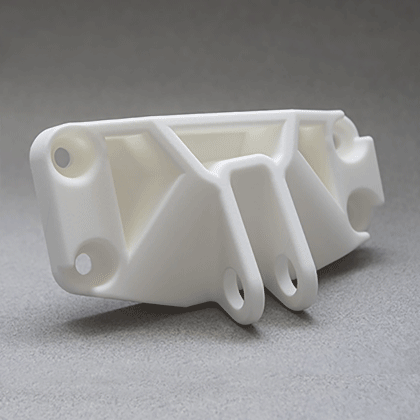In today's rapidly evolving industrial landscape, the utilization of advanced technologies has become imperative for businesses to stay competitive. One such technology that has revolutionized the manufacturing and prototyping processes is Selective Laser Sintering (SLS) rapid prototyping. This innovative method offers a myriad of benefits across various industries, making it a game-changer in product development and design.

The Versatility of SLS Rapid Prototyping
One of the key advantages of SLS rapid prototyping is its versatility. This technology enables the creation of complex geometries and intricate designs that were previously challenging to produce using traditional manufacturing methods. Whether it's the aerospace, automotive, healthcare, or consumer goods industry, SLS rapid prototyping provides the flexibility to develop prototypes with high precision and intricate details, meeting the diverse needs of different sectors.
Cost-Effectiveness and Time Efficiency
Another significant advantage of SLS rapid prototyping is its cost-effectiveness and time efficiency. Traditional prototyping methods often involve substantial tooling costs and longer lead times. In contrast, SLS rapid prototyping eliminates the need for expensive tooling and allows for the quick iteration of designs. This not only reduces the overall production costs but also accelerates the product development cycle, giving businesses a competitive edge in bringing their products to market swiftly.
Material Selection and Functional Prototyping
When it comes to material selection and functional prototyping, SLS rapid prototyping offers unparalleled advantages. With a wide range of materials, including various thermoplastics and composite materials, SLS technology enables the production of functional prototypes that closely mimic the properties of the final products. This capability is particularly valuable in industries such as medical device manufacturing, where the performance and biocompatibility of prototypes are critical for testing and validation.
Reduced Design Constraints and Customization
Traditional manufacturing processes often impose design constraints due to the limitations of tooling and machining. However, SLS rapid prototyping liberates designers from such constraints, allowing for the creation of highly customized and intricate designs. Whether it's the production of lightweight components with complex internal structures or personalized consumer products, SLS rapid prototyping empowers designers to unleash their creativity and explore innovative design possibilities that were previously unattainable.
In conclusion, the advantages of sls rapid prototyping are truly transformative across various industries. From its versatility and cost-effectiveness to material selection and design freedom, SLS rapid prototyping has redefined the prototyping and manufacturing landscape, offering unprecedented opportunities for businesses to innovate and excel in their respective domains.








